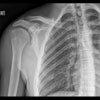
Coping with career dips and seeking ways to avoid burnout are increasingly common issues facing medical imaging staff, particularly in the COVID-19 pandemic. To boost your chances of success, it's essential to define the problem, identify positive steps -- albeit tiny ones -- and steer your own destiny, according to AuntMinnieEurope.com columnist Dr. Paul McCoubrie.
It isn't so much a question of "if" you're going to have a midlife crisis, but more a question of "how bad," he told attendees at Thursday's U.K. Royal College of Radiologists (RCR) online learning program, RCR Digital 2020, which runs until 9 October.
"Everyone has low points in their career and you never know what's around the corner for you," said McCoubrie, a consultant radiologist at Southmead Hospital in Bristol, U.K. "You might think you're smart, tough, and extremely motivated and you won't have a midlife crisis, but every corpse on Everest was once a smart, tough, and extremely motivated person."
 Dr. Paul McCoubrie from Bristol, U.K.
Dr. Paul McCoubrie from Bristol, U.K.A midlife crisis might be due to falling out of love with radiology, existential angst (you question your own existence; e.g., why am I here?), suffering from burnout, or a combination of all three. It is typically characterized by "ennui," or a feeling of boredom and malaise that includes listlessness and dissatisfaction arising from a lack of occupation or excitement.
"You hit this trough of overall happiness in your life -- and this doesn't apply only to doctors," he explained. "It seems to come at around 49, and that's exactly my age, which is a bit unfortunate!"
Routine, lack of challenge, irritation, frustration, alienation, pessimism, and alienation -- together with the "Brexit, Boris, etc." factor in the case of the British -- are common features. As a colleague said to McCoubrie recently, "Life is just so f...ing difficult."
"You're past your physical prime and everything from now on is downhill -- that's physically quite difficult to deal with," he continued. "You've got this chasm of 15, 20, 25 years of radiology ahead of you and it looks like a death march. The only way to stop it is to keel over or retire."
Signs of burnout
Burnout is more than just feeling stressed, he explained. It involves emotional exhaustion ("I really don't care anymore") and a feeling of decreased accomplishment (e.g., uselessness), and depersonalization (e.g., cynical, detached) often occurs.
The early signs are mood and sleep disturbances, difficulty concentrating, upset stomach or headaches, and vulnerability to viral infections and upper respiratory tract infection, McCoubrie pointed out. The following are definite signs: perceiving that every day is a bad day, feeling exhausted all the time, and the notion that caring about work seems a total waste of energy, nothing you do is appreciated, and you're just a cog in a machine.
"There's no magic wand and the solution has to come from within. But you can cope with (nearly) anything if you stay healthy and have good colleagues and a conducive environment," he said. "Any small things you can do to improve your life, even 1% marginal gains, can add up."
He recommends trying to do the following:
- Build in quality time, e.g., reading or playing sport for 30 minutes a day.
- Take care of your body -- eight hours' sleep, daily exercise, eat healthy, drink less alcohol.
- Disconnect from screens, nourish creativity, and make time for friends and family.
- Don't put off decisions. "As my friend Dr. Hywel Evans, a radiologist at Frimley Park, south of London, likes to say, this isn't a practice lap," McCoubrie said.
- Be prepared to walk away. Having firm boundaries leads to emancipation, try to finish work every day at 5 p.m., don't let other people's problems become your own, and drop sessions or consider going part-time. If all that fails, consider leaving your job to preserve your sanity.
- Be a good colleague: Spend 10% of your working day communicating with team members, be 100% polite, be irrepressibly positive, listen properly, and do your share of the less pleasant duties.
- Improve your environment. Be remorseless when it comes to spring-cleaning. "Declutter, declutter, declutter," McCoubrie said. Clean your computer, mouse, and headset. Think about refreshing your furniture, paint, carpet, etc. Also, buy a good coffee machine.
"Grab hold of your future and you'll be happier," he concluded.
Setting achievable goals
During her presentation at the same RCR session, Dr. Elizabeth Loney, clinical director of radiology and consultant radiologist at University Hospital of North Durham, gave the following seven tips on achieving success in the middle years of a radiologist's career:
- Challenge yourself to do something new every five years.
- Reinvent yourself occasionally.
- Have reasonable goals and don't set yourself up to fail.
- Surround yourself with positive people.
- Knock on lots of doors and some may open.
- Don't be afraid to move; the days of a "job for life" are over.
- Don't expect to be working in five years as you are now.



















